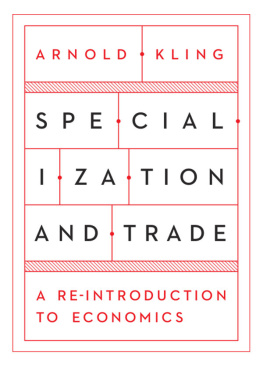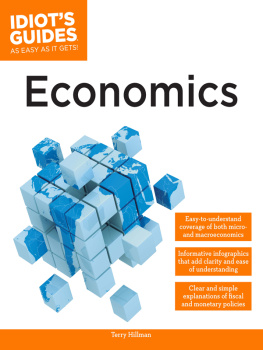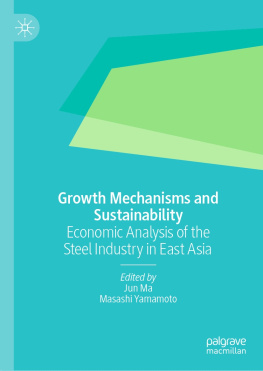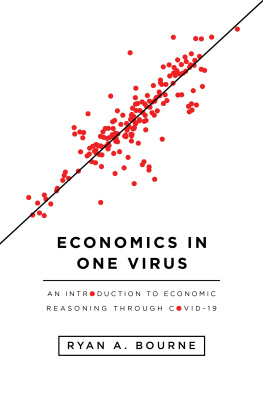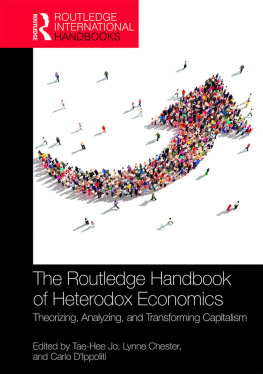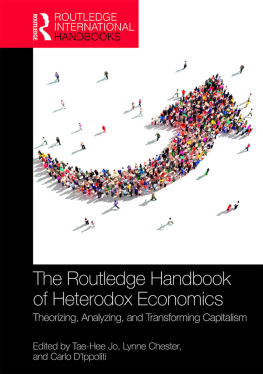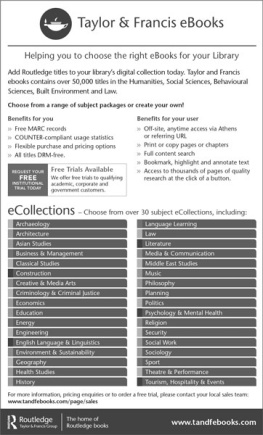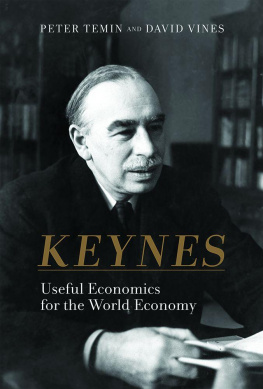Arnold Kling - Specialization and Trade: A Re-introduction to Economics
Here you can read online Arnold Kling - Specialization and Trade: A Re-introduction to Economics full text of the book (entire story) in english for free. Download pdf and epub, get meaning, cover and reviews about this ebook. year: 2016, publisher: Cato Institute, genre: Politics. Description of the work, (preface) as well as reviews are available. Best literature library LitArk.com created for fans of good reading and offers a wide selection of genres:
Romance novel
Science fiction
Adventure
Detective
Science
History
Home and family
Prose
Art
Politics
Computer
Non-fiction
Religion
Business
Children
Humor
Choose a favorite category and find really read worthwhile books. Enjoy immersion in the world of imagination, feel the emotions of the characters or learn something new for yourself, make an fascinating discovery.
- Book:Specialization and Trade: A Re-introduction to Economics
- Author:
- Publisher:Cato Institute
- Genre:
- Year:2016
- Rating:5 / 5
- Favourites:Add to favourites
- Your mark:
Specialization and Trade: A Re-introduction to Economics: summary, description and annotation
We offer to read an annotation, description, summary or preface (depends on what the author of the book "Specialization and Trade: A Re-introduction to Economics" wrote himself). If you haven't found the necessary information about the book — write in the comments, we will try to find it.
Since the end of the second World War, economics professors and classroom textbooks have been telling us that the economy is one big machine that can be effectively regulated by economic experts and tuned by government agencies like the Federal Reserve Board. It turns out they were wrong. Their equations do not hold up. Their policies have not produced the promised results. Their interpretations of economic events -- as reported by the media -- are often of-the-mark, and unconvincing.
A key alternative to the one big machine mindset is to recognize how the economy is instead an evolutionary system, with constantly-changing patterns of specialization and trade. This book introduces you to this powerful approach for understanding economic performance. By putting specialization at the center of economic analysis, Arnold Kling provides you with new ways to think about issues like sustainability, financial instability, job creation, and inflation. In short, he removes stiff, narrow perspectives and instead provides a full, multi-dimensional perspective on a continually evolving system.
Arnold Kling: author's other books
Who wrote Specialization and Trade: A Re-introduction to Economics? Find out the surname, the name of the author of the book and a list of all author's works by series.

